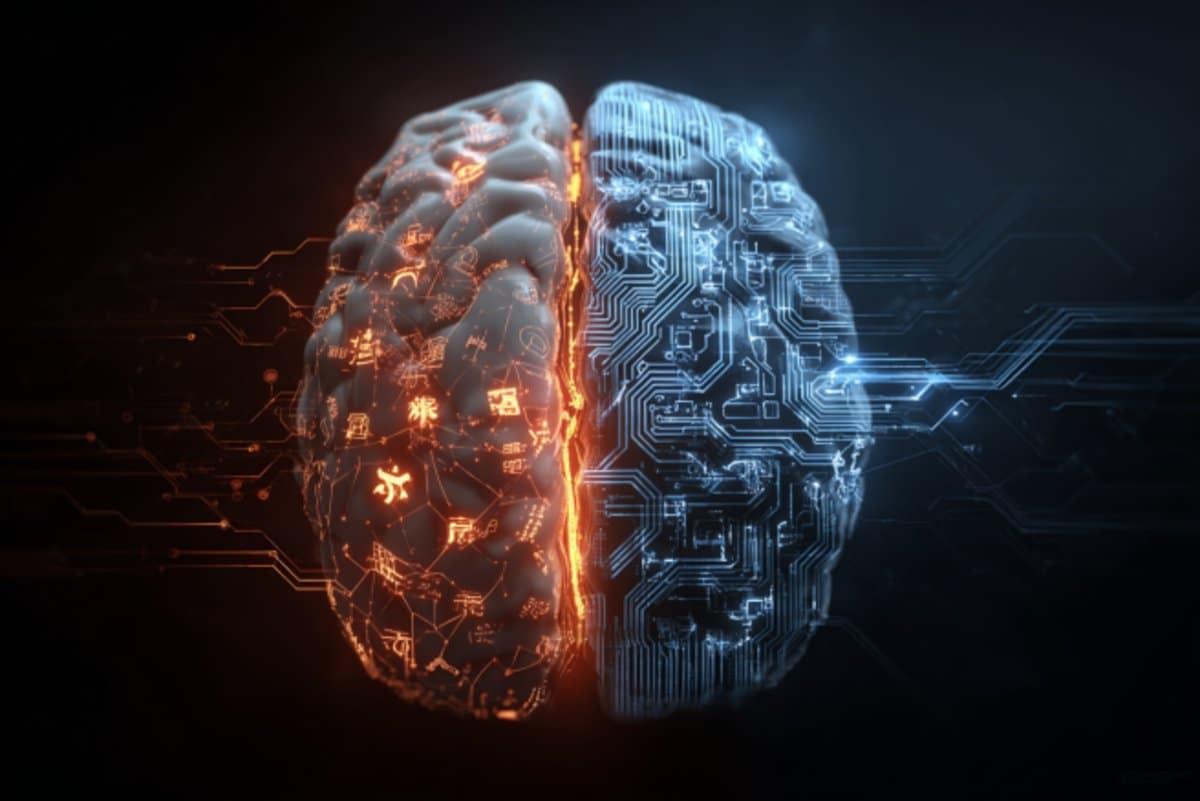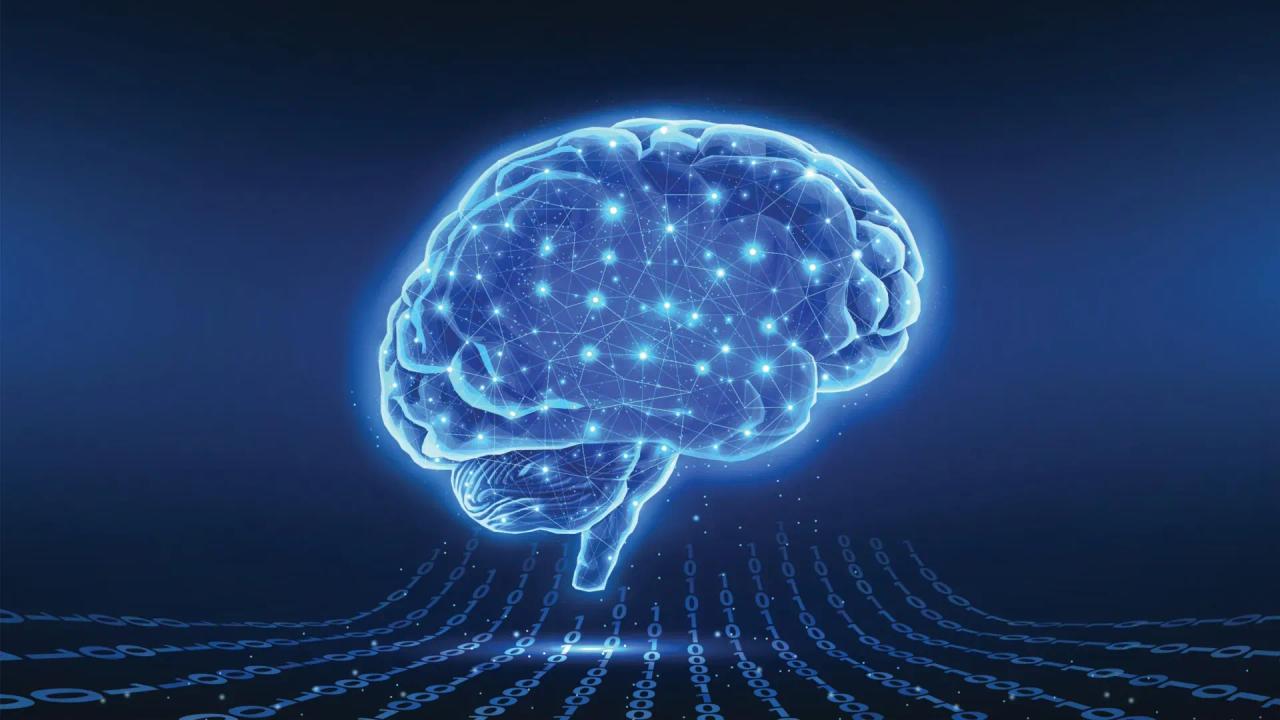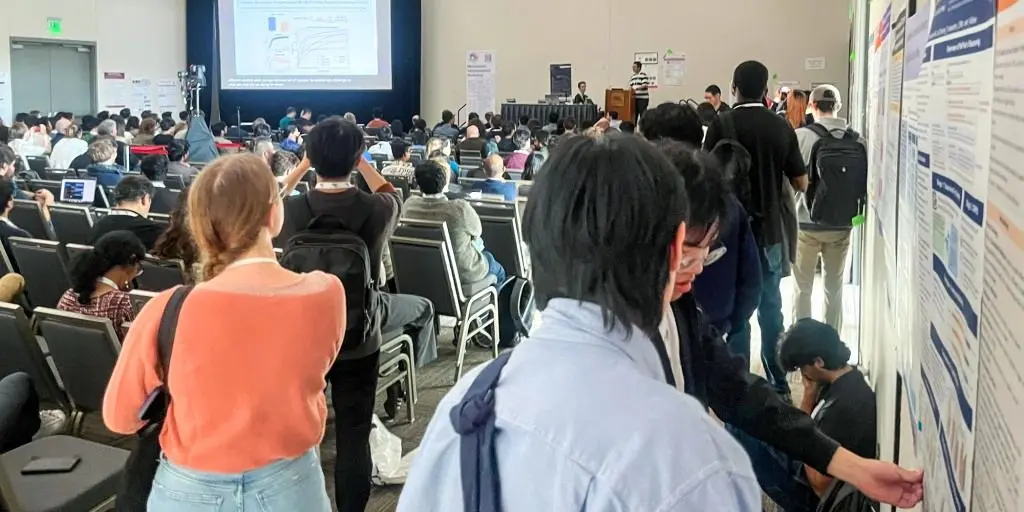Bridging the Adaptation Gap: How Humans Outpace AI in Handling New Situations
2 Sources
2 Sources
[1]
Why Humans Adapt Faster Than AI - Neuroscience News
Summary: Humans excel at adapting to new situations, while machines often stumble. A new interdisciplinary study reveals that the root lies in how humans and AI approach "generalization," the process of transferring knowledge to new problems. Humans rely on abstraction and conceptual frameworks, whereas AI systems apply statistical or rule-based methods, each with limits. Bridging these approaches could pave the way for more flexible, human-centered AI systems that adapt better to the complexities of everyday life. How do humans manage to adapt to completely new situations and why do machines so often struggle with this? This central question is explored by researchers from cognitive science and artificial intelligence (AI) in a joint article published in the journal "Nature Machine Intelligence". Among the authors are Professor Dr. Barbara Hammer and Professor Dr. Benjamin Paaßen from Bielefeld University. "If we want to integrate AI systems into everyday life, whether in medicine, transportation, or decision-making, we must understand how these systems handle the unknown," says Barbara Hammer, head of the Machine Learning Group at Bielefeld University. "Our study shows that machines generalize differently than humans and this is crucial for the success of future human-AI collaboration." Differences between humans and machines The technical term "generalization" refers to the ability to draw meaningful conclusions about unknown situations from known information, that is, to flexibly apply knowledge to new problems. In cognitive science, this often involves conceptual thinking and abstraction. In AI research, however, generalization serves as an umbrella term for a wide variety of processes: from machine learning beyond known data domains ("out-of-domain generalization") to rule-based inference in symbolic systems, to so-called neuro-symbolic AI, which combines logic and neural networks. "The biggest challenge is that 'Generalization' means completely different things for AI and humans," explains Benjamin Paaßen, junior professor for Knowledge Representation and Machine Learning in Bielefeld. "That is why it was important for us to develop a shared framework. Along three dimensions: What do we mean by generalization? How is it achieved? And how can it be evaluated?" Significance for the future of AI The publication is the result of interdisciplinary collaboration among more than 20 experts from internationally leading research institutions, including the universities of Bielefeld, Bamberg, Amsterdam, and Oxford. The project began with a joint workshop at the Leibniz Center for Informatics at Schloss Dagstuhl, co-organized by Barbara Hammer. The project also highlights the importance of bridging cognitive science and AI research. Only through a deeper understanding of their differences and commonalities will it be possible to design AI systems that can better reflect and support human values and decision-making logics. The research was conducted within the collaborative project SAIL - Sustainable Life-Cycle of Intelligent Socio-Technical Systems. SAIL investigates how AI can be designed to be sustainable, transparent, and human-centered throughout its entire life cycle. Funding: The project is funded by the Ministry of Culture and Science of the State of North Rhine-Westphalia. Aligning generalization between humans and machines Recent advances in artificial intelligence (AI) -- including generative approaches -- have resulted in technology that can support humans in scientific discovery and forming decisions, but may also disrupt democracies and target individuals. The responsible use of AI and its participation in human-AI teams increasingly shows the need for AI alignment, that is, to make AI systems act according to our preferences. A crucial yet often overlooked aspect of these interactions is the different ways in which humans and machines generalize. In cognitive science, human generalization commonly involves abstraction and concept learning. By contrast, AI generalization encompasses out-of-domain generalization in machine learning, rule-based reasoning in symbolic AI, and abstraction in neurosymbolic AI. Here we combine insights from AI and cognitive science to identify key commonalities and differences across three dimensions: notions of, methods for, and evaluation of generalization. We map the different conceptualizations of generalization in AI and cognitive science along these three dimensions and consider their role for alignment in human-AI teaming. This results in interdisciplinary challenges across AI and cognitive science that must be tackled to support effective and cognitively supported alignment in human-AI teaming scenarios.
[2]
Why machines struggle with the unknown: Exploring the gap in human and AI learning
How do humans manage to adapt to completely new situations and why do machines so often struggle with this? This central question is explored by researchers from cognitive science and artificial intelligence (AI) in a joint article published in the journal Nature Machine Intelligence. Among the authors are Professor Dr. Barbara Hammer and Professor Dr. Benjamin Paaßen from Bielefeld University. "If we want to integrate AI systems into everyday life, whether in medicine, transportation, or decision-making, we must understand how these systems handle the unknown," says Prof. Dr. Hammer, head of the Machine Learning Group at Bielefeld University. "Our study shows that machines generalize differently than humans and this is crucial for the success of future human-AI collaboration." Differences between humans and machines The technical term "generalization" refers to the ability to draw meaningful conclusions about unknown situations from known information, that is, to flexibly apply knowledge to new problems. In cognitive science, this often involves conceptual thinking and abstraction. In AI research, however, generalization serves as an umbrella term for a wide variety of processes: from machine learning beyond known data domains ("out-of-domain generalization") to rule-based inference in symbolic systems, to so-called neuro-symbolic AI, which combines logic and neural networks. "The biggest challenge is that 'Generalization' means completely different things for AI and humans," explains Prof. Dr. Paaßen, junior professor for Knowledge Representation and Machine Learning in Bielefeld. "That is why it was important for us to develop a shared framework. Along three dimensions: What do we mean by generalization? How is it achieved? And how can it be evaluated?" Significance for the future of AI The publication is the result of interdisciplinary collaboration among more than 20 experts from internationally leading research institutions, including the universities of Bielefeld, Bamberg, Amsterdam, and Oxford. The project began with a joint workshop at the Leibniz Center for Informatics at Schloss Dagstuhl, co-organized by Prof. Dr. Hammer. The project also highlights the importance of bridging cognitive science and AI research. Only through a deeper understanding of their differences and commonalities will it be possible to design AI systems that can better reflect and support human values and decision-making logics.
Share
Share
Copy Link
A new interdisciplinary study explores why humans excel at adapting to new situations while AI often struggles. The research highlights fundamental differences in how humans and machines approach 'generalization' and proposes a framework to bridge this gap.

Bridging the Gap: Human vs. AI Adaptation to New Situations
In an era where artificial intelligence (AI) is becoming increasingly integrated into our daily lives, researchers are delving into a crucial question: Why do humans excel at adapting to new situations while machines often struggle? A groundbreaking interdisciplinary study, published in Nature Machine Intelligence, brings together experts from cognitive science and AI to explore this fundamental difference
1
2
.The Generalization Conundrum
At the heart of this research lies the concept of "generalization" - the ability to apply knowledge from known situations to unfamiliar ones. Professor Barbara Hammer, head of the Machine Learning Group at Bielefeld University, emphasizes the importance of understanding how AI systems handle the unknown, especially as we integrate them into critical areas such as medicine, transportation, and decision-making
2
.The study reveals a fundamental difference in how humans and machines approach generalization:
- Human Approach: Humans rely on conceptual thinking and abstraction, using mental frameworks to navigate new situations.
- AI Approach: Machines employ a variety of methods, including out-of-domain generalization in machine learning, rule-based inference in symbolic systems, and neuro-symbolic AI that combines logic and neural networks
1
.
Developing a Shared Framework
Professor Benjamin Paaßen, junior professor for Knowledge Representation and Machine Learning at Bielefeld University, highlights the challenge in reconciling these different approaches. To address this, the researchers developed a shared framework along three dimensions
2
:- Definition: What does generalization mean in each context?
- Method: How is generalization achieved?
- Evaluation: How can generalization be measured and assessed?
Implications for Human-AI Collaboration
This research has significant implications for the future of AI and its integration into human society. The study underscores the need for AI systems that can better reflect and support human values and decision-making processes. By understanding the differences in generalization approaches, researchers aim to design more flexible, human-centered AI systems that can adapt to the complexities of everyday life
1
.Related Stories
Interdisciplinary Collaboration
The study is a result of extensive collaboration among over 20 experts from leading research institutions worldwide, including universities in Bielefeld, Bamberg, Amsterdam, and Oxford. This interdisciplinary approach, bridging cognitive science and AI research, is crucial for developing AI systems that can effectively participate in human-AI teams
2
.Future Directions
The research is part of the SAIL (Sustainable Life-Cycle of Intelligent Socio-Technical Systems) project, which investigates how AI can be designed to be sustainable, transparent, and human-centered throughout its lifecycle. Funded by the Ministry of Culture and Science of the State of North Rhine-Westphalia, this project represents a significant step towards aligning AI capabilities with human cognitive processes
1
.As AI continues to advance, understanding and bridging the gap between human and machine generalization will be crucial for creating AI systems that can truly complement and enhance human capabilities in an ever-changing world.
References
Summarized by
Navi
[1]
Related Stories
MIT Study Reveals Nuances in Human-AI Collaboration Effectiveness
28 Oct 2024•Science and Research

Human Brain's Intuitive Navigation Outperforms AI, Offering Insights for Smarter Machines
17 Jun 2025•Science and Research

AI Falls Short in Understanding Human Social Interactions, Study Reveals
25 Apr 2025•Science and Research

Recent Highlights
1
ByteDance's Seedance 2.0 AI video generator triggers copyright infringement battle with Hollywood
Policy and Regulation

2
Demis Hassabis predicts AGI in 5-8 years, sees new golden era transforming medicine and science
Technology

3
Nvidia and Meta forge massive chip deal as computing power demands reshape AI infrastructure
Technology





